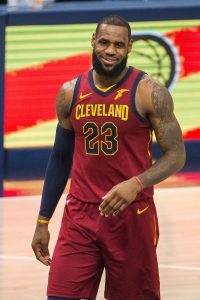“Super-teams” have been part of the NBA since the league was formed. George Mikan’s Minneapolis Lakers were the league’s first dynasty in the early 1950s, followed by Bill Russell’s Celtics, who won 11 titles in 13 years. The Lakers and Celtics dominated the ’80s, the Bulls owned the ’90s, the Lakers and Spurs took over next, then LeBron James went to Miami and Kevin Durant joined the Warriors.
The only decade without a repeat champion was the 1970s, when fan interest reached a low point.
While dominant teams have long been a part of NBA culture, they haven’t been controversial until recent years. That’s probably because the earlier dynasties were built through drafting and trades, while the more recent versions have involved star players deciding they want to team up.
Tim Bontemps of The Washington Post recently spoke to players about the super-team issue and found most accept it as part of the modern NBA.
“If you don’t have a super-team, or three superstars, or three All-Stars on your team, it’s very hard to win,” Wizards point guard John Wall said. Washington has won just three playoff series and hasn’t advanced past the second round since Wall joined the team. The last four years, he watched James lead the Cavaliers to Eastern Conference titles.
Paul George passed up a chance to help build a new super-team in Los Angeles this summer when he opted to re-sign with the Thunder. He hears the criticism from former players who don’t like to see the modern stars aligning, but he says it’s necessary for any of them to have a chance at a ring.
“Who would we be fooling if we went out alone and tried to go up against the Warriors? The best guy in our league right now couldn’t do it,” George said. “[James] got swept [in the 2018 Finals]. So that just goes to show you at this point what it takes to win. Because you need guys that are alike talent-wise and skill set-wise to win championships.”
Proponents of super-teams say they promote fan interest and help create a story line for each season. There’s evidence to support that argument, but there may also be a point where interest fades. Television ratings for the NBA Finals have declined in each of the past three years. After cresting at 11.6 in 2015, they dropped to an average of 11.4, 11.3 and then 10.0 last season when the Warriors’ sweep seemed like a foregone conclusion.
We want to get your opinion. Do super-teams make the league more or less interesting? Is the idea of top free agents conspiring to play together good for the NBA or should the league office take steps to prevent it? Please leave your feedback in the space below.
